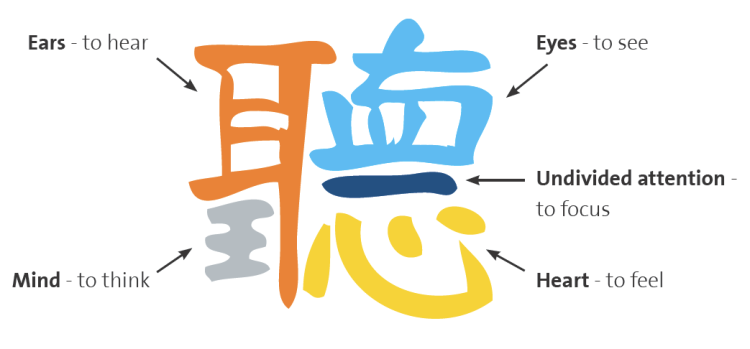
It is interesting for me to read that our brains can process ideas at about 600 words per minute, whereas we tend to speak at 100-150 words per minute. What this means is that listening to someone speaking – paying careful attention to what he or she says – needs deliberate work.
No wonder we oftentimes do not listen fully to what is being said! Our mind wanders, thinking that we can multitask between listening to a person speaking, and thinking other thoughts at the same time.
As leaders we need to be good listeners. Our people deserve our attention and our time. To make a deliberate point of listening to what they say is to honour their effort and show by our action, that we appreciate and recognise their thoughts and ideas.
By failing to listen carefully, we often miss ideas and fail to catch the imaginative ideas of others, which can possibly use to conceive something new and unique in future. If we adopt such an attitude, listening will not be a chore even if it may not be a pleasure…rather, listening is a way into the future!
The iPhone and iPad are creations by Steve Jobs of Apple. What is noteworthy is that no new technology was involved in the creation of the iPhone and iPad. What Steve Jobs did was to listen to many ideas, take proven technology, and combine them in a new and creative way that benefits millions of people all around the world. This is how listening with an open mind offers opportunity to create new possibilities from others’ ideas.
Leadership is to think anew and prepare for the future. Listening is an integral and important part of preparing for the future.
Photo credit: http://www.s-group.co.uk/wp-content/uploads/2011/11/Listening.png
